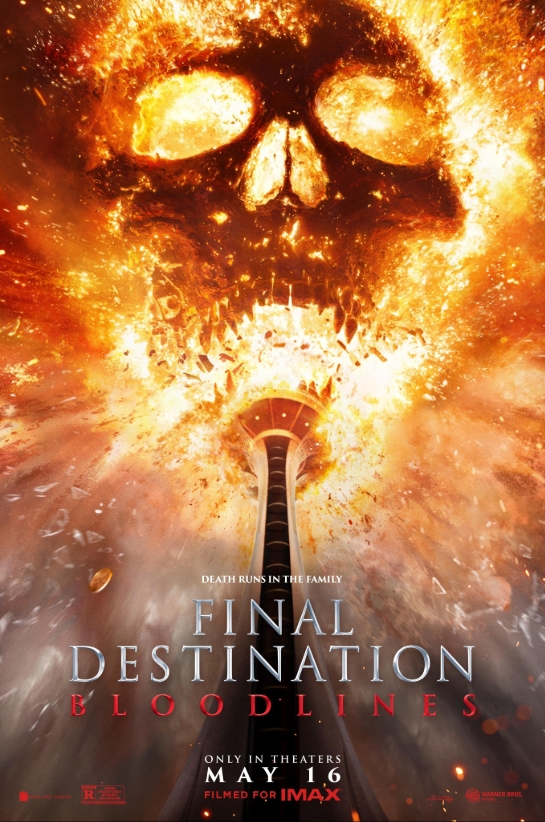Gladiator II Christian Review

Ridley Scott has returned to the Roman arena with Gladiator II, a bold attempt to recapture the raw intensity of the original. It’s big. It’s loud. It’s everything you’d expect — and maybe a little less. From a Christian perspective, though, there’s a lot to unpack here. The story isn’t just about swords and sand; it’s about power, redemption, and what it means to stand for something greater than yourself. But the question remains: does this sequel honor its predecessor while leaving room for deeper reflection, or does it get lost in the glitz of its own grandiosity?
The Spectacle vs. The Substance
Let’s start with the obvious. Gladiator II is visually stunning. You’re immediately immersed in a world of ancient Rome that feels both majestic and alien. The sweeping landscapes, the dusty amphitheaters, the sheer scale of it all—it’s Ridley Scott doing what Ridley Scott does best. But here’s the thing: spectacle without substance is like a feast without food for the soul.
The movie leans hard into its visuals, which can sometimes overshadow the deeper themes that made the first Gladiator so compelling. Sure, you get the drama, the betrayal, and the heart-pounding action, but you also get moments where it feels like the movie is shouting, “Look at me!” rather than asking, “What does this mean?”
For Christians, this raises an interesting dilemma. The Bible often uses vivid imagery to communicate deeper truths — think of the parting of the Red Sea or the visions in Revelation. But those images always point to something greater. Here, the spectacle sometimes feels self-serving, as though it exists to entertain rather than edify.
Themes of Honor and Sacrifice
One thing the movie does get right, though, is its exploration of honor and sacrifice. These themes run deep, and they’re some of the few elements that feel like they genuinely resonate with the heart of Christianity.
Paul Mescal’s character is the quintessential reluctant hero, burdened by responsibility but willing to rise to the occasion. His journey mirrors the struggles we all face — the call to do what’s right, even when it’s hard. Watching him wrestle with his choices reminds me of biblical figures like Moses or David, who were far from perfect but ultimately chose to follow God’s call on their lives.
That said, there’s a disconnect. While the movie nods to these virtues, it doesn’t dig deeper into their spiritual implications. It’s one thing to show a character sacrificing for the greater good; it’s another to explore what motivates that sacrifice. Is it love? Duty? A sense of divine purpose? The movie doesn’t say, and that feels like a missed opportunity.
Violence and Virtue
Now, let’s talk about the violence. It’s brutal, unflinching, and — let’s be honest — pretty entertaining. But as Christians, we’re called to think critically about what we consume. Yes, the Roman arena was a violent place, and the movie doesn’t shy away from that reality. But at what point does depicting violence become glorifying it?
This isn’t an easy question to answer. On one hand, the Bible doesn’t shy away from stories of war and bloodshed. On the other hand, those stories always serve a greater purpose. They point to God’s justice, mercy, or sovereignty. Here, the violence often feels like it’s there for the thrill of it, rather than to serve a higher narrative.
For some viewers, this might be a dealbreaker. For others, it’s just part of the experience. Either way, it’s worth considering how the movie’s portrayal of violence aligns with your values.
The Performances: A Mixed Blessing
Denzel Washington as Macrinus. Paul Mescal as the hero. Joseph Quinn and Fred Hechinger as the antagonists. The cast is stacked, and the performances don’t disappoint. Washington, in particular, steals the show with a presence that’s as commanding as it is complex. Every time he’s on screen, you can’t help but be drawn in.
But here’s the catch: while the actors deliver, the script sometimes lets them down. The dialogue is sharp in places but clichéd in others. It’s like the movie can’t decide whether it wants to be profound or just plain fun. For Washington’s Macrinus, this works. He’s larger-than-life, a character who thrives on drama. For Mescal’s hero, though, it’s a bit of a struggle. He’s supposed to be the emotional core of the film, but the script doesn’t always give him the depth he needs.
From a Christian perspective, this is both a strength and a weakness. The characters wrestle with moral and existential dilemmas, but those dilemmas often feel surface-level. There’s a sense that the movie wants to say something profound about faith, duty, or the human condition but doesn’t quite know how to articulate it.
The Shadow of the Original
Let’s not ignore the elephant in the room. Gladiator II lives in the shadow of its predecessor, and it knows it. The movie leans heavily on callbacks and familiar beats, which can feel both comforting and frustrating. It’s like listening to a cover of your favorite song. It’s good, maybe even great, but it’s not the same.
For fans of the original, this might be enough. There’s a certain joy in revisiting a world you love, even if it’s not as fresh or impactful as it once was. But for those looking for something new, the movie might feel like a retread.
From a Christian standpoint, this raises an interesting parallel. How often do we try to recreate past glories rather than looking forward to new opportunities? The Bible reminds us that God is always doing a new thing (Isaiah 43:19). Maybe Gladiator II would have been stronger if it had embraced that idea, rather than clinging so tightly to the past.
A Final Thought
So, where does that leave us? Gladiator II is a movie that entertains, inspires, and frustrates in equal measure. It’s a visual and emotional rollercoaster that touches on themes of honor, sacrifice, and redemption without fully exploring them.
As a Christian viewer, there’s value in the film’s portrayal of virtue and perseverance, but it’s important to approach it with discernment. The violence, the spectacle, and the sometimes-shallow storytelling might not align with everyone’s values, and that’s okay. At the end of the day, it’s a movie—a well-made, thought-provoking, but imperfect one.
Rating: 7/10
It’s worth watching, but don’t expect it to change your life. Let it entertain you, but don’t forget to ask yourself the deeper questions it only hints at. That’s where the real value lies.




